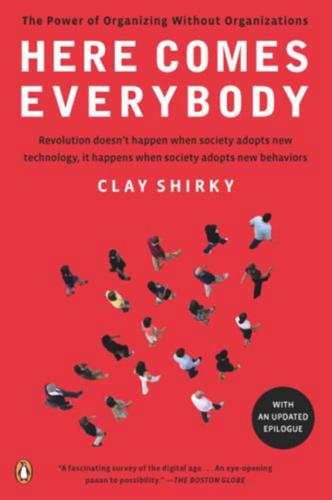
Here Comes Everybody: The Power of Organizing Without Organizations
by
Clay Shirky
Published 28 Feb 2008
Once the scribe’s skills were eminently replaceable, his function—making copies of books—was better accomplished by ignoring tradition than by embracing it. Two things are true about the remaking of the European intellectual landscape during the Protestant Reformation: first, it was not caused by the invention of movable type, and second, it was possible only after the invention of movable type, which aided the rapid dissemination of Martin Luther’s complaints about the Catholic Church (the 95 Theses) and the spread of Bibles printed in local languages, among its other effects. Holding those two thoughts in your head at the same time is essential to understanding any social change driven by a new technological capability.
…
By hand-copying new editions of existing manuscripts, they performed a task that could be performed no other way. The scribe was the only bulwark against great intellectual loss. His function was indispensable, and his skills were irreplaceable. Now consider the position of the scribe at the end of the 1400s. Johannes Gutenberg’s invention of movable type in the middle of the century had created a sudden and massive reduction in the difficulty of reproducing a written work. For the first time in history a copy of a book could be created faster than it could be read. A scribe, someone who has given his life over to literacy as a cardinal virtue, would be conflicted about the meaning of movable type.
…
Adam Smith, in The Wealth of Nations, pointed out that although water is far more important than diamonds to human life, diamonds are far more expensive, because they are rare. The entire basis on which the scribes earned their keep vanished not when reading and writing vanished but when reading and writing became ubiquitous. If everyone can do something, it is no longer rare enough to pay for, even if it is vital. The spread of literacy after the invention of movable type ensured not the success of the scribal profession but its end. Instead of mass professionalization, the spread of literacy was a process of mass amateurization. The term “scribe” didn’t get extended to everyone who could read and write. Instead, it simply disappeared, as it no longer denoted a professional class.

The Book: A Cover-To-Cover Exploration of the Most Powerful Object of Our Time
by
Keith Houston
Published 21 Aug 2016
A Clean Sheet: the invention of papyrus 2. Hidebound: the grisly invention of parchment 3. Pulp Fictions: the ambiguous origins of paper in China 4. From Silk Road to Paper Trail: paper goes global Part 2 The Text 5. Stroke of Genius: the arrival of writing 6. The Prints and the Pauper: Johannes Gutenberg and the invention of movable type 7. Out of Sorts: typesetting meets the Industrial Revolution Part 3 Illustrations 8. Saints and Scriveners: the rise of the illuminated manuscript 9. Ex Oriente Lux: woodcut comes to the West 10. Etching a Sketch: copperplate printing and the Renaissance 11. Better Imaging Through Chemistry: lithography, photography, and modern book printing Part 4 Form 12.
…
Gutenberg sank the money into his new workshop and promptly defaulted upon the interest payments.19 Fust must have been incandescent in his rage, and yet, two years later, as recorded in the inevitable court judgment, he would go on to lend Gutenberg another 800 Rheingulden on the condition that Gutenberg take on Fust’s adopted son, Peter Schöffer, as his foreman. Gutenberg assented, Schöffer was hired, and Fust paid out the second loan.20 Why was Fust so ready to throw good money after bad? The prize that Gutenberg had dangled in front of his financier was, of course, the invention of movable type: the promise that a book could be replicated over and over again with minimal effort. In an era when a handwritten Bible commanded a price equivalent to a laborer’s yearly wage, the ability to print an endless run of books must have appeared as a license to mint Rheingulden.21 And so Fust was content, if not entirely happy, to leave Gutenberg to tinker with the devices that littered his printing workshop in anticipation of the truly colossal profits that lay ahead if the process could be perfected.
…
Even as late as the eighteenth century, European writers lamented the failure of their indigenous inks to match the deep black color and permanence of their favored “India ink.”54 The Chinese themselves may have started to believe the hype: by the tenth century, ink was being mixed with substances such as turnip, foxglove juice, and bile for use as a medicine to stop bleeding.55 But as enticing as Chinese ink was to calligraphers and doctors, it was a stumbling block for Chinese printers who tried to move beyond simple woodblock printing. Their water-based ink did not adhere well to metal, earthenware, or porcelain and produced blotchy, indistinct images.56 Another famed Chinese invention bound up with books and bookmaking also proved to be an obstacle to the wider adoption of movable type. Chinese paper was too delicate to withstand the pressure needed to form a crisp impression, requiring that printers use handheld brushes rather than firm mechanical presses to impress their paper onto their type. Not only that, China’s water-based ink tended to seep through the paper and made it impossible to print on both sides of a sheet.57 In the end, however, Chinese movable type was undone as much by economics as by anything else.

One Good Turn: A Natural History of the Screwdriver and the Screw
by
Witold Rybczynski
Published 27 Mar 2000
A rabitstoke, I learn, is a plane for shaping complicated grooves, or rabbets; the two wooden screws, holding an adjustable fence, are part of the tool.5 Small wooden screws were also used to make bench vises and assorted clamps; large wooden screws adjusted the vertical and horizontal angle of cannons. The most famous use of screws in the Middle Ages was in printing presses. Johannes Gutenberg played a pivotal role in the invention of movable type in the mid-1400s; unfortunately, there is no surviving description of his press. The earliest known representation of a printing press is about fifty years later. It consists of a heavy wood frame with a crosspiece through which a large screw is threaded. The screw is turned by means of a handspike, or lever, and pushes down a wooden board, which in turn presses the paper against the inked type.
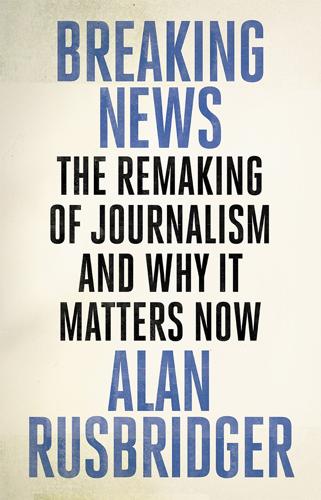
Breaking News: The Remaking of Journalism and Why It Matters Now
by
Alan Rusbridger
Published 14 Oct 2018
We know infinitely more than ever before. There is a new democracy of knowledge that has swept over us so suddenly and so overwhelmingly that it is almost impossible to glimpse, let alone comprehend. Much of it is liberating, energising and transformative. It is a revolution to rival the invention of movable type in the fifteenth century. And much of it is poisonous and dangerous. Some of it – like the Swedish saga – is sort-of-slightly-true enough to be turned into toxic demagoguery. In the new horizontal world people are no longer so dependent on the ‘wisdom’ of a few authority figures. The reach and speed of public connectedness is unbeatable by any media organisation on earth.
…
The kids in the basement might have a PC capable of accessing the web, but most of us had only read about it. Writing 15 years later in the Observer,2 the critic John Naughton compared the begetter of the world wide web, Sir Tim Berners-Lee, with the seismic disruption five centuries earlier caused by the invention of movable type. Just as Gutenberg had no conception of his invention’s eventual influence on religion, science, systems of ideas and democracy, so – in 2008 – ‘it will be decades before we have any real understanding of what Berners-Lee hath wrought’. And so I set off to find the internet with the leader of the PDU team, Tony Ageh, a 33-year-old ‘creative’.
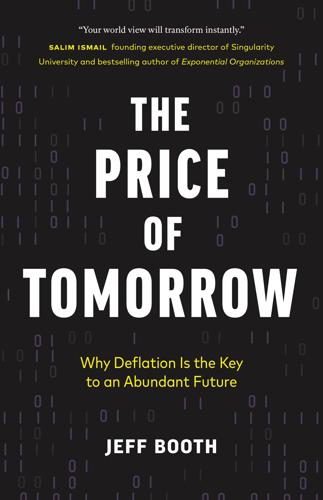
The Price of Tomorrow: Why Deflation Is the Key to an Abundant Future
by
Jeff Booth
Published 14 Jan 2020
In fact, for approximately 300,000 years, our brains have remained largely unchanged.41 These isolated and prehistoric people are as we could be—and vice versa. What, then, changed to give us a staggering advance in this kind of “intelligence”? We have had written language for millennia now, and it has enabled those who knew how to use it to increase their store of understanding. But a real phase shift started with Johannes Gutenberg’s invention of movable type and the printing press in 1439. Gutenberg’s press could be viewed as one of the most important inventions of humanity. Various forms of printing existed for hundreds of years beforehand, but they were slow, expensive, and as such only available to small parts of the population. The printing press led to the mass storage of information, effectively allowing the human brain to be extended to books where information could be recalled at will.
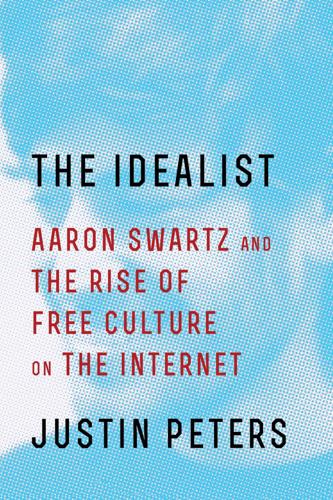
The Idealist: Aaron Swartz and the Rise of Free Culture on the Internet
by
Justin Peters
Published 11 Feb 2013
Ashcroft, 122–23 and free culture movement, 3–4 as penalty vs. opportunity, 115 and public access, 185–87 purpose of, 112 and social value, 4, 135 Public Knowledge, 230 public.resource.org, 185 Publishers’ Weekly, 53, 56, 58, 59 publishing: of academic research, 175–77, 178 as “best-seller system,” 65 commercial viability of, 13, 25–26, 39, 121, 175 “courtesy of the trade,” 54–56, 65 electronic, 120 and invention of movable type, 18 of non-US books, 39, 41, 46–47 percentage of authors’ royalties to, 41 protectionist laws, 120 serials pricing crisis in, 175 of unauthorized editions, 42–43, 53, 56 white-shoe East Coast, 54–55 Putnam, George Haven, 53–55, 56, 57 and free public libraries, 70 and international copyright, 53, 59, 60, 64 Memories of a Publisher, 54 Putnam, George Palmer, 45 Putnam, Herbert: as Boston head librarian, 67, 70 and copyright law revisions, 72–73, 75–76 death of, 78 as librarian of Congress, 70–71, 77–78 on public libraries, 80, 100 Putnam, John, 71 Putnam’s, 52 Quine, Willard Van Orman, 217 Radway, Janice A., 69 Ramsay, David, 25, 34 Rand, Ayn, Atlas Shrugged, 107 RAND Corporation, 82 Raw Nerve, 251–53, 255 ask others for help, 252–53, 257 believe you can change, 251–52 confront reality, 254 lean into the pain, 252, 257 on systemic failure, 265 take a step back, 252 reading: cheap books, 52, 55–56, 58, 59, 61 dime novels, 52, 55 e-books, 99, 107, 117 escapism in, 52 literacy rates, 25, 26–27, 39, 44, 48 penny press, 48 value of, 48–49 recorded sound, 69, 71, 74, 77 Recording Industry Association of America (RIAA), 134, 152–53 Reddit, 156–61, 164, 223 development of, 149–51 and Internet Censorship Day, 240, 241 sale of, 2, 156, 158, 170 Swartz’s departure from, 159–61, 171, 248 Reed Elsevier, 175, 178–79, 180, 239 Reformation, 99 Rehnquist, William, 138 Rein, Lisa, 123, 130, 139, 141, 269 Remember Aaron Swartz, 261 Rensselaer, Stephen van, 35 resource.org, 187 Reville, Nicholas, 152 robotic harvesting, 198–99 Romuald (monk), 169 Roosevelt, Franklin D., 78, 82, 208 Roosevelt, Theodore, 70, 75 Rousseau, Jean-Jacques, 151 Rules, The, breakers of, 14 Rush, Benjamin, 33 Russell, Bertrand, 254 Ryshke, Robert, 127 Sadler, Bess, 181 Santana, Carlos, 111 Scalia, Antonin, 121 Scheiber, Noam, 201 Schoen, Seth, 8, 138–39, 144, 148 Schonfeld, Roger, JSTOR, 195, 196 Schoolyard Subversion (blog), 126 Schulman, John, 85 Schultze, Stephen, 189 Schwartz, John, 191 Schweber, S.

The Secret War Between Downloading and Uploading: Tales of the Computer as Culture Machine
by
Peter Lunenfeld
Published 31 Mar 2011
This figure comes from Lawrence Haverty Jr., senior vice president of State Street Research, quoted in Rachel Konrad, “Assessing the Carnage: Sizing Up the Market’s Swift Demise,” CNET News, March 8, 2001, available at <http://news. com.com/2009-1017-253125-2.html?legacy=cnet>. 5. In 1997, Bran Ferren of Disney Imagineering proclaimed, “The Net, I guarantee you, really is fire. I think it’s more important than the invention of movable type.” Quoted in Richard Rhodes, Visions of Technology: A Century of Vital Debate about Machines, Systems, and the Human World (New York: Simon and Schuster, 1999), 13. 6. Peter Lunenfeld, “TEOTWAWKI,” artext 65 (1999): 34–35; reprinted in Peter Lunenfeld, USER: InfoTechnoDemo (Cambridge, MA: MIT Press, 2005). 7.
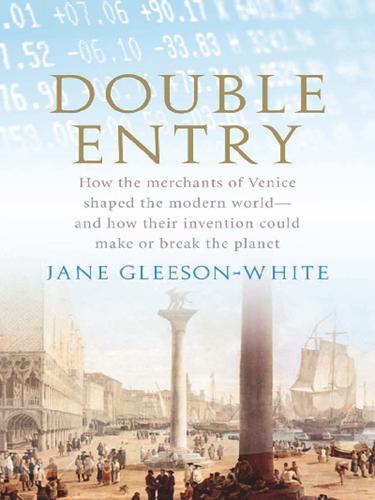
Double Entry: How the Merchants of Venice Shaped the Modern World - and How Their Invention Could Make or Break the Planet
by
Jane Gleeson-White
Published 14 May 2011
It is worth examining in some detail not only Pacioli’s life but also his times, because in his century Italy was shaken by a renaissance in mathematics and a communications revolution which both bore directly on the staying power of double entry itself. Luca Pacioli’s double-entry bookkeeping treatise Particularis de computis et scripturis (‘Particulars of Reckonings and Writings’) was published in his mathematical encyclopaedia in Venice in 1494, forty years after the invention of movable type in Europe and the fall of Constantinople to the Ottoman Turks. It appeared in the same decade that Columbus sighted America and Vasco da Gama discovered a sea route to India, at a time when mathematics was taught as astrology in the universities of Europe and witches were burnt at the stake.
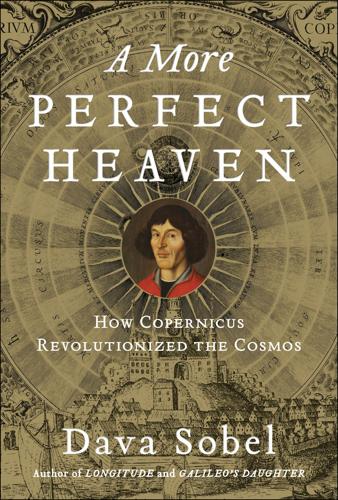
More Perfect Heaven: How Copernicus Revolutionised the Cosmos
by
Dava Sobel
Published 1 Sep 2011
New York: Hippocrene, 2004. Footnotes 1 Medieval scholar Gerard of Cremona (1114–1187) compiled this edition from several Arabic translations of the original (lost) Greek text. Gerard is said to have completed the work at Toledo in 1175, but its publication waited half a century after the invention of movable type, to be issued in Venice in 1515. 2 Copernicus’s realization that bad money drives good money out of circulation often goes by the name Gresham’s Law, in honor of Sir Thomas Gresham (c. 1519–1579), a financial adviser to English royalty who made the same wise observation. The concept was also put forward by medieval philosopher Nicole Oresme and mentioned by the Ancient Greek playwright Aristophanes in his comedy The Frogs. 3 Against all odds, the entire handwritten, original manuscript of On the Revolutions survives to this day—a bound stack of yellowed paper two hundred sheets thick—in ultrasafe keeping at the Library of the Jagiellonian University in Krakow. 4Theodoric of Reden, Copernicus’s fellow canon in Varmia, then served as the chapter’s representative to the papal court at Rome. 5While working together in Frauenburg, Rheticus and Copernicus observed a comet that they judged to be supralunar, just as Tycho later demonstrated to the world.
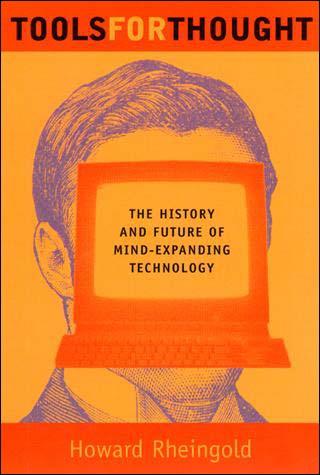
Tools for Thought: The History and Future of Mind-Expanding Technology
by
Howard Rheingold
Published 14 May 2000
The human mind is not going to be replaced by a machine, at least not in the foreseeable future, but there is little doubt that the worldwide availability of fantasy amplifiers, intellectual toolkits, and interactive electronic communities will change the way people think, learn, and communicate. It looks as if this latest technology-triggered transformation of society could have even more intense impact than the last time human thought was augmented, five hundred years ago, when the Western world learned to read. Less than a century after the invention of movable type, the literate community in Europe had grown from a privileged minority to a substantial portion of the population. People's lives changed radically and rapidly, not because of printing machinery, but because of what that invention made it possible for people to know. Books were just the vehicles by which the ideas escaped from the private libraries of the elite and circulated among the population.

The Constitution of Knowledge: A Defense of Truth
by
Jonathan Rauch
Published 21 Jun 2021
Movable type made replicating a book something like 300 times cheaper, according to Tom Wheeler, a former chairman of the Federal Communications Commission, in his 2019 book, From Gutenberg to Google: The History of Our Future. No wonder that within half a century of movable type’s invention, printers had been established in every major European city. In the first fifty years after the invention of movable type, notes Wheeler, “more books were printed than had been produced in a millennium.” Just as suddenly, ordinary people had access to a far wider range of ideas—some of them false and dangerous. One of the first uses of the new technology was for what today we call conspiracy theories or fake news: a tract called Malleus Maleficarum (“Hammer of Witches”) swept across Europe after its publication in the late 1400s, claiming that witches lurked everywhere and inspiring panics and tens of thousands of murders.
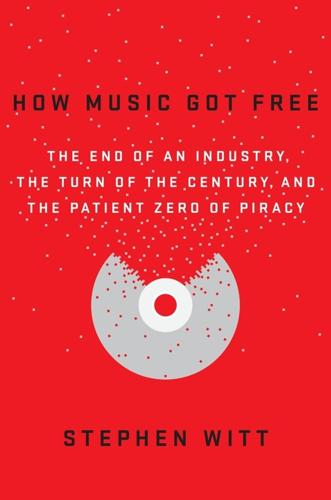
How Music Got Free: The End of an Industry, the Turn of the Century, and the Patient Zero of Piracy
by
Stephen Witt
Published 15 Jun 2015
As tended to happen in corporate America, the executives had looked at the last three years of revenues, then extrapolated from those a trend line that extended off to infinity. As required by law, the prospectus also contained an exhaustive examination of the potential risks. Chief among these was piracy, which had plagued the recording industry since its inception. (In fact, piracy had plagued the creative industries since the invention of movable type, and in the context of copyright infringement, the term “pirate” was more than 300 years old.) Piracy was something every recording executive took seriously, and already, as a result of the physical bootlegging of compact discs, PolyGram had been forced to exit certain markets in Asia and Latin America entirely.
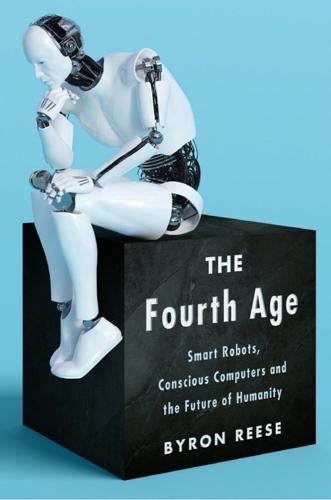
The Fourth Age: Smart Robots, Conscious Computers, and the Future of Humanity
by
Byron Reese
Published 23 Apr 2018
All of this together allowed us to advance our technology relatively quickly over the next few thousand years. Our world up to recent times has been a Third Age world. While incredible innovation has occurred along the way, such as the development of the steam engine, the harnessing of electrical power, and the invention of movable type, these were not fundamental changes in the nature of being human in the way language, agriculture, and writing were. The signature innovations within the Third Age have been evolutionary more than revolutionary. This is not to diminish them. Printing changed the world profoundly, but it was simply a cheaper and more efficient way to do something that we already could do.

Power, for All: How It Really Works and Why It's Everyone's Business
by
Julie Battilana
and
Tiziana Casciaro
Published 30 Aug 2021
The agricultural revolution changed the distribution of power on two levels: geographically, by favoring societies rich in farming resources, like domesticated animals, crops, and farming technology; and within those societies, by liberating a new social class to devote their time to intellectual, technical, commercial, and political pursuits that further consolidated their hold on power.4 Much later, in the mid-1400s, the course of human society was radically changed again by the invention of movable type. Gutenberg’s invention spread like wildfire, with entrepreneurs who had learned to build and operate the new technology opening printing shops in commercial centers across Western Europe. Merchants, literate peasants, and intellectuals alike could now access and share unprecedented amounts of information.

The Diary of a Bookseller
by
Shaun Bythell
Published 27 Sep 2017
To my knowledge there is nobody in the trade who still sends out catalogues, and with the swift and apparently inexorable decline in bricks-and-mortar bookshops, I fear that we may go the same way. Our times, though, are not the first transitional period in the history of publishing and bookselling. As Jen Campbell points out in The Bookshop Book, following Gutenberg’s invention of movable type and the first ‘mass market’ books becoming available, ‘Vespasiano da Bisticci, a famous bookseller in Florence, was so outraged that books would no longer be written out by hand that he closed his shop in a fit of rage, and became the first person in history to prophesy the death of the book industry.’
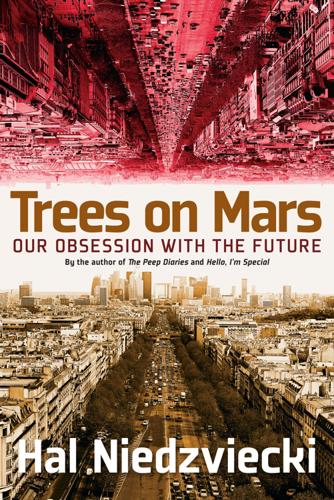
Trees on Mars: Our Obsession With the Future
by
Hal Niedzviecki
Published 15 Mar 2015
The Mellon Foundation is providing large grants to several universities including a 2013 grant of one million dollars to the University of Rochester to develop a graduate fellowship in DH.12 The authors of the handbook Digital Humanities talk about the field’s arrival as nothing less than transformational: “We live in one of those rare moments of opportunity for the humanities, not unlike other great eras of cultural-historical transformation such as the shift from the scroll to the codex, the invention of movable type, the encounter with the New World, and the Industrial Revolution.”13 Scholar Jerome McGann, long an advocate of using computing in the humanities, suggests that the primary goal of the Digital Humanities will be to reshape the institution: “Here is surely a truth now universally acknowledged: that the whole of our cultural inheritance has to be recurated and reedited in digital forms and institutional structures.”14 In other words, notes New Republic senior editor Adam Kirsch in an essay, “Here is the future, we are made to understand: we can either get on board or stand athwart it and get run over.”15 Kirsch quotes from an article called “What Is Digital Humanities and What’s It Doing in English Departments?”
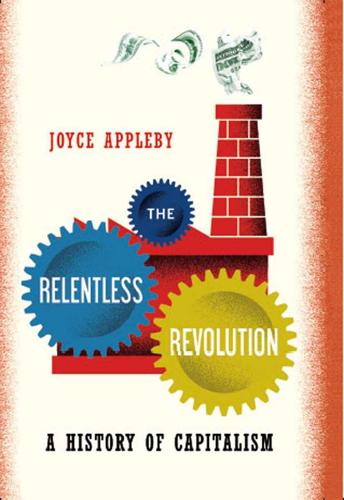
The Relentless Revolution: A History of Capitalism
by
Joyce Appleby
Published 22 Dec 2009
Public discussions ensued that analyzed these economic novelties. Fresh intellectual interests, enhanced by a new vocabulary, became crucial to the modern transformation of traditional countries. Many mechanical devices and institutional procedures became useful to entrepreneurs without themselves being causes of the emergence of capitalism. The invention of movable type made printing cheaper, promoting a book trade that carried news of explorations throughout Europe. The Greek astrolabe and compass proved a great aid to navigating the waters of three oceans. Italian double-entry bookkeeping enabled merchants to keep better track of their profits. All these improvements contributed to industrial enterprise, but they didn’t cause capitalism to appear; they were propitious factors in its development.
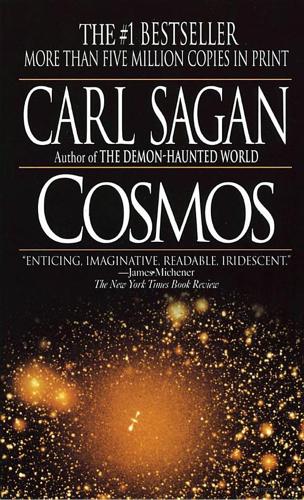
Cosmos
by
Carl Sagan
Published 1 Jan 1980
Then in China between the second and sixth centuries, paper, ink and printing with carved wooden blocks were all invented, permitting many copies of a work to be made and distributed. It took a thousand years for the idea to catch on in remote and backward Europe. Then, suddenly, books were being printed all over the world. Just before the invention of movable type, around 1450, there were no more than a few tens of thousands of books in all of Europe, all handwritten; about as many as in China in 100 B.C., and a tenth as many as in the Great Library of Alexandria. Fifty years later, around 1500, there were ten million printed books. Learning had become available to anyone who could read.
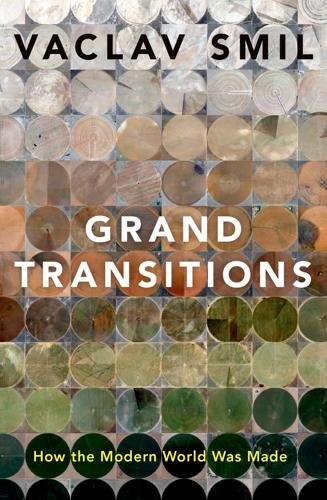
Grand Transitions: How the Modern World Was Made
by
Vaclav Smil
Published 2 Mar 2021
By 1900, as steam turbines and internal combustion engines were displacing steam engines, it had to be clear to every informed engineer that it was only a matter of time before the last steam engine would be made. In contrast, nobody could predict either the actual speed or eventual extent of successive waves generated by access to information. When Gutenberg used his invention of movable type to print the first pages of his Bible in 1454, he could not foresee that during the remaining 45 years of the 15th-century European printers would publish more than 11,000 new editions, that the number of new titles would rise by an order of magnitude during the second half of the 16th century (to about 135,000), and that they would reach nearly 650,000 during the second half of the 18th century (Buringh and van Zanden 2009).
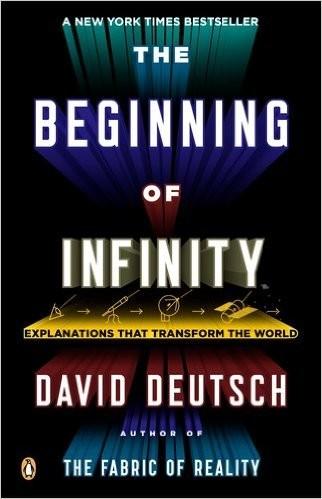
The Beginning of Infinity: Explanations That Transform the World
by
David Deutsch
Published 30 Jun 2011
In all those cases, universality was being sought deliberately, as a desirable feature in its own right – even a necessary feature for an idea to be true – and not just as a means of solving a parochial problem. A jump to universality that played an important role in the early history of the Enlightenment was the invention of movable-type printing. Movable type consisted of individual pieces of metal, each embossed with one letter of the alphabet. Earlier forms of printing had merely streamlined writing in the same way that Roman numerals streamlined tallying: each page was engraved on a printing plate and thus all the symbols on it could be copied in a single action.
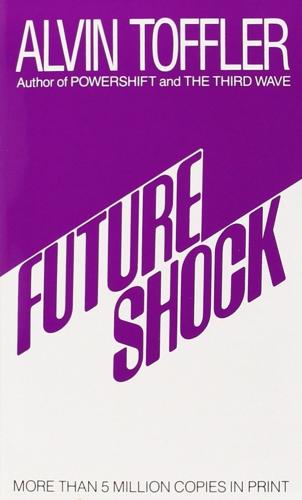
Future Shock
by
Alvin Toffler
Published 1 Jun 1984
KNOWLEDGE AS FUEL The rate at which man has been storing up useful knowledge about himself and the universe has been spiraling upward for 10,000 years. The rate took a sharp upward leap with the invention of writing, but even so it remained painfully slow over centuries of time. The next great leap forward in knowledge—acquisition did not occur until the invention of movable type in the fifteenth century by Gutenberg and others. Prior to 1500, by the most optimistic estimates, Europe was producing books at a rate of 1000 titles per year. This means, give or take a bit, that it would take a full century to produce a library of 100,000 titles. By 1950, four and a half centuries later, the rate had accelerated so sharply that Europe was producing 120,000 titles a year.
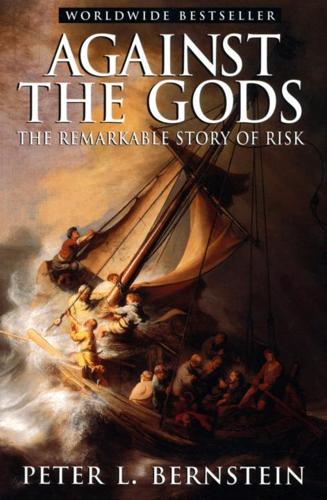
Against the Gods: The Remarkable Story of Risk
by
Peter L. Bernstein
Published 23 Aug 1996
Although the new numbers had gained their first foothold in Italy, where education levels were high, Florence issued an edict in 1229 that forbade bankers from using the "infidel" symbols. As a result, many people who wanted to learn the new system had to disguise themselves as Moslems in order to do so.15 The invention of printing with movable type in the middle of the fifteenth century was the catalyst that finally overcame opposition to the full use of the new numbers. Now the fraudulent alterations were no longer possible. Now the ridiculous complications of using Roman numerals became clear to everyone. The breakthrough gave a great lift to commercial transactions.
…
Actually, Cardano's intellectual curiosity was far stronger than his ego. In his autobiography, for example, he lists the four main achievements of the times in which he lived: the new era of exploration into the two-thirds of the world that the ancients never knew, the invention of firearms and explosives, the invention of the compass, and the invention of printing from movable type. Cardano was a skinny man, with a long neck, a heavy lower lip, a wart over one eye, and a voice so loud that even his friends complained about it. According to his own account, he suffered from diarrhea, ruptures, kidney trouble, palpitations, even the infection of a nipple. And he boasted, "I was ever hot-tempered, single-minded, and given to women" as well as "cunning, crafty, sarcastic, diligent, impertinent, sad, treacherous, magician and sorcerer, miserable, hateful, lascivious, obscene, lying, obsequious, fond of the prattle of old men."
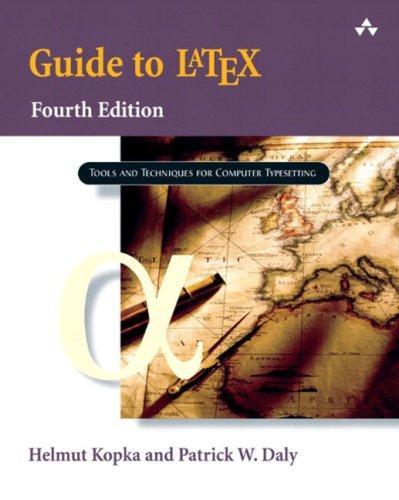
Guide to LaTeX
by
Helmut Kopka
and
Patrick W. Daly
Published 15 Feb 2008
This is not really necessary, for LATEX need not be married to any particular set of fonts, especially with the New Font Selection Scheme (Appendix A) which simplifies font installation enormously. The main fonts used in this book, for example, are Lucida Bright, Lucida Sans, and Lucida Sans Typewriter, designed by Bigelow & Holmes and distributed by Y&Y Inc. G.2.1 Font families Typography is the study and classification of typefaces, something that goes back to Gutenberg’s invention of movable type (not of the printing press, which was invented by the Chinese) five and a half centuries ago. Since that time, many families of fonts have been created, bearing classical names like Baskerville, Garamond, Univers, etc. Each member of such a family has the same overall design, or basic look, but vary by being slanted, italic, bold, or thin; and of course, they come in different sizes.

The Secret World: A History of Intelligence
by
Christopher Andrew
Published 27 Jun 2018
The English Act De Heretico Comburendo of 1401 laid down that relapsed heretics were to be surrendered to the secular arm and burnt ‘before the people in a high place’ in order that ‘such punishment may strike fear into the minds of others, whereby no such wicked doctrine and heretical and erroneous opinions . . . be sustained or in any case suffered’.34* Modern one-party states have sought to preserve their monopoly of the truth by control or censorship of the media as well as by repression of dissidents. The distant origins of modern media control lie in a tradition of ecclesiastical censorship which began to develop during the Middle Ages. The supposed threat posed by unorthodox or heretical writing greatly increased after the invention of movable-type printing in the 1440s, which some in the Roman Curia (the Church’s central administration) regarded as the work of the Devil. By 1500 printing presses had already produced about twenty million volumes. They were crucial to the rapid spread of the Reformation after Martin Luther nailed his ninety-five theses challenging papal indulgences to the door of the Castle Church in Wittenberg on All Saints’ Eve 1517.
…
After the arrest of an agent of the Venetian ambassador in Turin in 1591, the Spanish ambassador said no real blame attached to his Venetian colleague because ambassadors ‘habitually’ made use of spies.15 Venice’s archives, however, reveal more about the employment of spies by its embassies than the intelligence they obtained.16 The same is true of the agents employed directly by the Council of Ten.17 Many were foreign merchants who passed on information during business trips to Venice.18 Much of their information on both commercial and political developments came from open sources – among them newsletters (avvisi) made possible by the invention of movable type. ‘The sixteenth-century Mediterranean’, writes the historian Noel Malcolm, ‘was a news-hungry world.’19 For most of the sixteenth century the greatest power in the eastern Mediterranean as well as the main threat to Venice was the Ottoman Empire, which in 1529 narrowly failed to capture Vienna.

The Twittering Machine
by
Richard Seymour
Published 20 Aug 2019
At first, says historian Warren Chappell, writing and print were one and the same thing: ‘They both begin with the leaving of footprints.’3 As though writing were both the journey and the map, a record of where the mind has been. Printed matter, arguably the first authentically capitalist commodity, has been the dominant format of public writing almost since the invention of the movable-type printing press almost six hundred years ago. Without print capitalism and the ‘imagined communities’ it helped call into existence, modern nations would not exist.4 The development of modern bureaucratic states would have been impeded. Most of what we call industrial civilization, and the scientific and technological developments it depends upon, would have come, if at all, far more slowly.
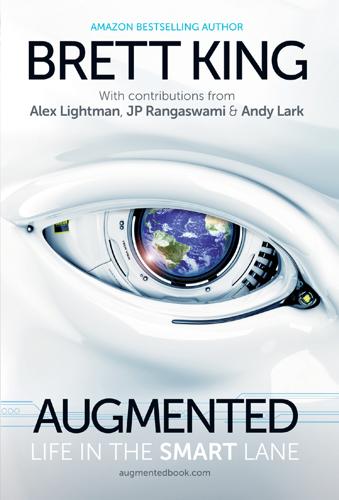
Augmented: Life in the Smart Lane
by
Brett King
Published 5 May 2016
Glasses date back to 13th-century Italy but were only commonplace by the 1700s. Monks and scholars reportedly wore the earliest glasses, given the detailed nature of their work. The early glasses were held in front of the eyes or balanced on the nose, evolving from magnifying glasses. The invention of the movable-type printing press in 1452, the growing rate of literacy and the availability of books encouraged new designs and the eventual mass production of inexpensive glasses. However, once lens technology appeared, using glass to magnify vision quickly became an application of the technology. Roger Bacon is said to have invented the magnifying glass around the year 1250.
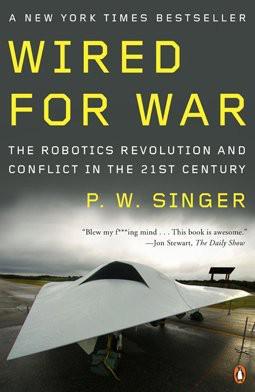
Wired for War: The Robotics Revolution and Conflict in the 21st Century
by
P. W. Singer
Published 1 Jan 2010
For example, the printing press revolutionized human awareness and knowledge, but it also sparked the bloody conflicts of the Reformation that culminated in the Thirty Years’ War, which left nearly a third of Europe dead. Today we are living through its modern parallel. “The Internet is the greatest tool for spreading knowledge and hatred since the invention of movable type.” Robotics have an even greater potential for both good and ill. And from this conflict emerges, tells Peters. There will be battles because of change and battles to resist change. “The root causes of conflict in the 21st century are humanity’s default positions.... In times of crisis, when humans have to ask the fundamental question of ‘Who am I?’
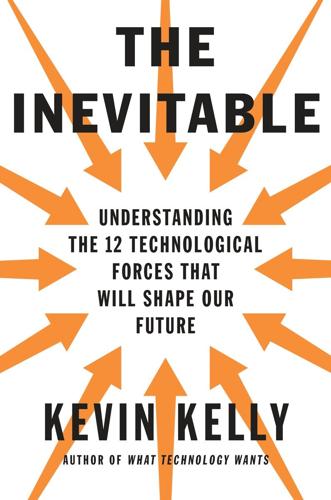
The Inevitable: Understanding the 12 Technological Forces That Will Shape Our Future
by
Kevin Kelly
Published 6 Jun 2016
Think of the world flowing. 4 SCREENING In ancient times culture revolved around the spoken word. The oral skills of memorization, recitation, and rhetoric instilled in oral societies a reverence for the past, the ambiguous, the ornate, and the subjective. We were People of the Word. Then, about 500 years ago, orality was overthrown by technology. Gutenberg’s 1450 invention of metallic movable type elevated writing into a central position in the culture. By the means of cheap and perfect copies, printed text became the engine of change and the foundation of stability. From printing came journalism, science, libraries, and law. Printing instilled in society a reverence for precision (of black ink on white paper), an appreciation for linear logic (in a string of sentences), a passion for objectivity (of printed fact), and an allegiance to authority (via authors), whose truth was as fixed and final as a book.
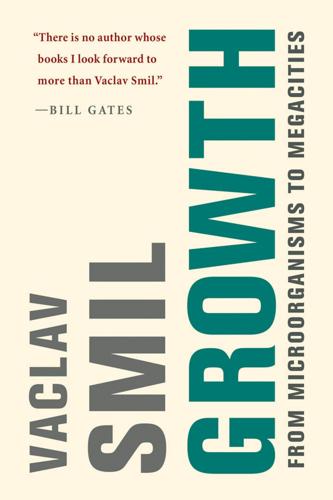
Growth: From Microorganisms to Megacities
by
Vaclav Smil
Published 23 Sep 2019
For example, instead of telephones think of the diffusion of microwave ovens and instead of an app think of mass-produced microwavable popcorn: obviously, diffusion rates of the most popular brand of the latter will be faster than were the adoption rates of the former. In fact, in the US it took about three decades for countertop microwave ovens, introduced in 1967, to reach 90% of all households. The growth of information has proved equally mesmerizing. There is nothing new about its ascent. The invention of movable type (in 1450) began an exponential rise in book publishing, from about 200,000 volumes during the 16th century to about 1 million volumes during the 18th century, while recent global annual rate (led by China, the US, and the United Kingdom) has surpassed 2 million titles (UNESCO 2018). Add to this pictorial information whose growth was affordably enabled first by lithography, then by rotogravure, and now is dominated by electronic displays on mobile devices.
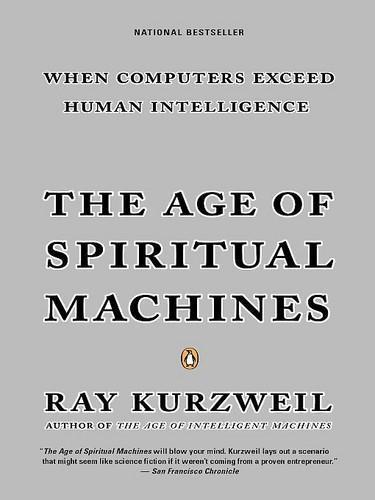
The Age of Spiritual Machines: When Computers Exceed Human Intelligence
by
Ray Kurzweil
Published 31 Dec 1998
Windmills emerged in several parts of the world, facilitating expertise with elaborate gearing machines that would subsequently support the first calculating machines. The invention in the thirteenth century of a weight-driven clock using the cam technology perfected for windmills and waterwheels freed society from structuring their lives around the sun. Perhaps the most significant invention of the late Middle Ages was Johannes Gutenberg’s invention of the movable-type printing press, which opened intellectual life beyond an elite controlled by church and state. By the seventeenth century, technology had created the means for empires to span the globe. Several European countries, including England, France, and Spain, were developing economies based on far-flung colonies.
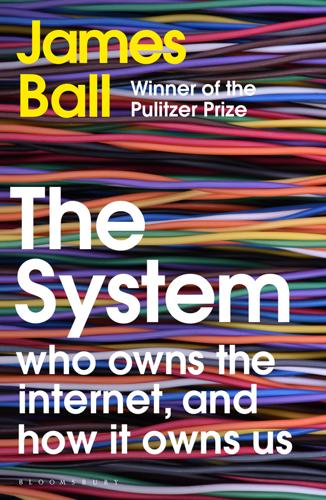
The System: Who Owns the Internet, and How It Owns Us
by
James Ball
Published 19 Aug 2020

The Fracture Zone: My Return to the Balkans
by
Simon Winchester
Published 16 Oct 2000
” * The cleric was a keen military man as well, in common with most Montenegrins, and liked to show his skills by having an attendant toss into the air a lemon, which he would speedily shoot and destroy. “A singular accomplishment for a Bishop,” wrote a British diplomat who met him. * About which Werner Herzog made a film, Fitzcarraldo, some years ago. † Including Cyrillic volumes printed by a press set up in Cetinje in 1493, just twenty years after Caxton invented the idea of movable type. But as befits the weird mix of scholarship and war characterizing the Montenegrin, the lead type had to be melted down soon after and made into bullets instead. * The diplomats who were posted to Cetinje worked rather little—one result being that it was not until 1995 that someone noticed that a formal state of war still existed between Montenegro and Japan.
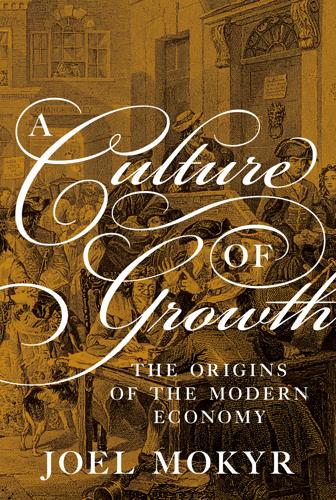
A Culture of Growth: The Origins of the Modern Economy
by
Joel Mokyr
Published 8 Jan 2016
The progressive attitudes of medieval culture were not guaranteed to last, and they did not; by the fifteenth century, the Catholic Church had become more inward looking, conservative, and averse to change. But it let the genie out of the bottle. Technological creativity blossomed in fifteenth-century Europe, including the invention of the movable-type printing press, the casting of iron, and major advances in shipbuilding and navigational instruments. How should we think of the cultural changes relevant to subsequent economic development in the centuries between 1500 and 1700? As we have seen, religious beliefs were profoundly transformed in this age and in some ways made to coexist with and even encourage experimental science.
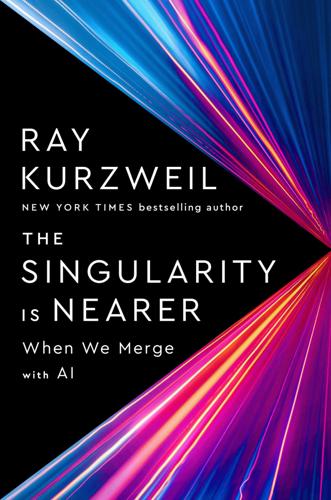
The Singularity Is Nearer: When We Merge with AI
by
Ray Kurzweil
Published 25 Jun 2024
The Magna Carta, which famously articulated the rights of ordinary people not to be unjustly imprisoned, was penned in 1215 and signed by King John.[184] Yet for most of the Middle Ages, commoners’ rights were often ignored and political participation was minimal. This changed with Gutenberg’s invention of the movable-type printing press around 1440, and with its rapid adoption the educated classes were able to spread both news and ideas with far greater effectiveness.[185] The printing press is an excellent illustrative example of how the law of accelerating returns works for information technologies.

Paper Machines: About Cards & Catalogs, 1548-1929
by
Markus Krajewski
and
Peter Krapp
Published 18 Aug 2011
To protect the analogies suggested here from the threat of mere speculation, and to restrict them carefully to whatever valuable insight they can provide, such passages are annotated so as to provide readers with information about the limits and extensions of the comparisons made.16 The arc of this history sets out with a library guide, not in the sense of an agent that shows the way around the library, but in terms of marking the place where cataloging principles mature in the form of the card index, leading to other applications. And it ends in the age of the office, an era of productivity minus the concept “service,” and of office devices minus electricity. 2 Temporary Indexing With the invention and spread of printing with movable type, a complaint arises in the learned reading world. It is the book flood, always a nautical or irrigation metaphor, that has a disturbing effect on readers in the newly established privacy of their studies.1 “There are so many books that we lack the time even to read the titles,” notes the Italian bibliographer Anton Francesco Doni in 1550, already pointing toward the increasing reading of titles and footnotes as a principal reaction to too many texts.2 The explosion of written material after the introduction of the printing press brings a lot of attention to the library, which it did not garner in medieval times.
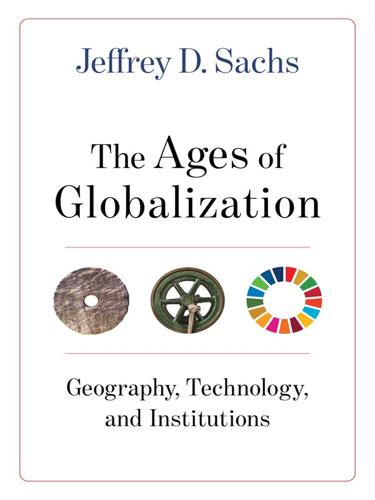
The Ages of Globalization
by
Jeffrey D. Sachs
Published 2 Jun 2020
The Renaissance had its roots as well in the growing commerce and urbanization occurring throughout Western Europe, but notably in northern Italy, the Netherlands, and southern Germany. Florence, with its burgeoning trade and industry in woolens, was a center of the new Renaissance learning and arts. The third great event of the age was the invention (or, in part, the reception from China) of printing with movable type, led by Johannes Gutenberg around 1439 in Mainz. This invention dramatically reduced the cost of books and quickly led to the establishment of more than a hundred printshops in Europe by 1480. An estimated 20 million book copies were printed by 1500, and the numbers would soar in the coming century.
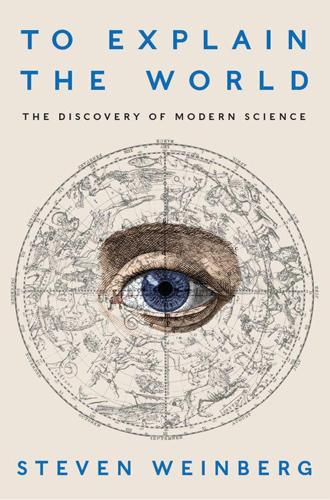
To Explain the World: The Discovery of Modern Science
by
Steven Weinberg
Published 17 Feb 2015
National governments were consolidated in France under Charles VII and Louis XI and in England under Henry VII. The fall of Constantinople in 1453 sent Greek scholars fleeing westward to Italy and beyond. The Renaissance intensified interest in the natural world and set higher standards for the accuracy of ancient texts and their translation. The invention of printing with movable type made scholarly communication far quicker and cheaper. The discovery and exploration of America reinforced the lesson that there is much that the ancients did not know. In addition, according to the “Merton thesis,” the Protestant Reformation of the early sixteenth century set the stage for the great scientific breakthroughs of seventeenth-century England.

Matchmakers: The New Economics of Multisided Platforms
by
David S. Evans
and
Richard Schmalensee
Published 23 May 2016
Merchants, meanwhile, often developed sufficient trust in each other, through repeated dealing, that they were willing to extend credit. One merchant, for example, sold four pieces of cloth to two other merchants who agreed to pay their debt, on demand, at any one of sixteen fairs held during a particular month in the next year.9 Now let’s move forward another several centuries. The invention of the printing press with movable type by Gutenberg around 1440 led to the explosive growth of the media business, including newspapers. Before 1800, print newspapers had begun to publish classified ads. These ran the gamut from ads for people looking for marriage, to ads for people looking to rent a room, to ads for medical wares or even haberdashery or drapery.10 According to a history of advertising by the industry publication Advertising Age, “[b]y 1800 most English and American newspapers were not only supported by advertising but were the primary medium carrying it.”11 At first, newspapers didn’t impose any structure on the classifieds, so it was hard to find things.
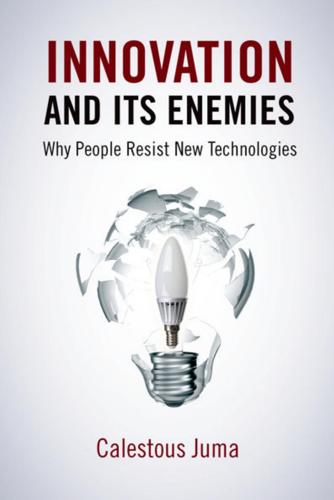
Innovation and Its Enemies
by
Calestous Juma
Published 20 Mar 2017

The Everything Store: Jeff Bezos and the Age of Amazon
by
Brad Stone
Published 14 Oct 2013
He spoke to an audience of a hundred or so journalists and publishing executives, a relatively small crowd compared to the reverential throngs who gathered for the product rollouts of Apple. Wearing a blue sport coat and khakis, Bezos stated that Amazon’s new device was the successor to the five-hundred-and-fifty-year-old invention of blacksmith Johannes Gutenberg, the movable-type printing press. “Why are books the last bastion of analog?” Bezos asked that day. “The question is, can you improve upon something as highly evolved and as well suited to its task as the book, and if so, how?” The original Kindle, priced at $399, was clearly the product of all the compromises and anxieties that had gone into its labored three-year development.

A Place for Everything: The Curious History of Alphabetical Order
by
Judith Flanders
Published 6 Feb 2020
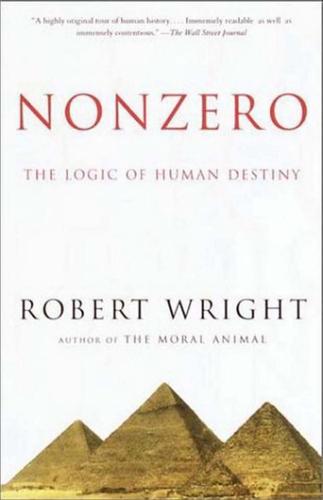
The Moral Animal: Evolutionary Psychology and Everyday Life
by
Robert Wright
Published 1 Jan 1994
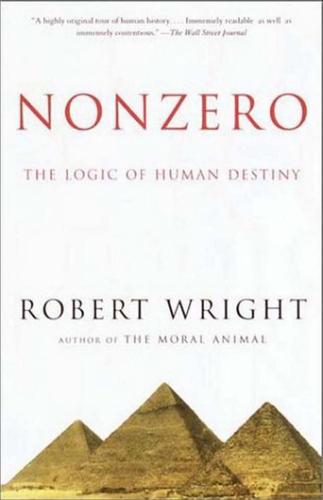
Nonzero: The Logic of Human Destiny
by
Robert Wright
Published 28 Dec 2010

Shady Characters: The Secret Life of Punctuation, Symbols, and Other Typographical Marks
by
Keith Houston
Published 23 Sep 2013
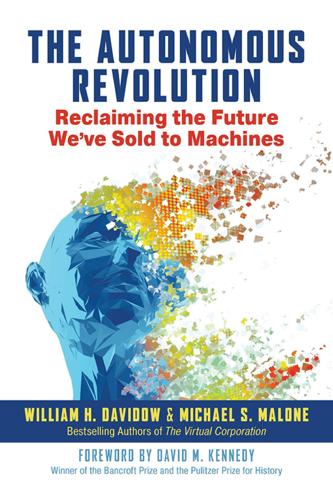
The Autonomous Revolution: Reclaiming the Future We’ve Sold to Machines
by
William Davidow
and
Michael Malone
Published 18 Feb 2020
They transformed the way large portions of the world were governed. The new tools they used to control behavior were ideas of redemption and eternal life as opposed to force. Printing was the first major general-purpose technology to emerge after the invention of agriculture, and it powered the first modern communications revolution. The printing press and movable type, invented by Johannes Gutenberg around 1440,19 made mass communication possible, democratizing the spread of information. Until Gutenberg, the Catholic Church had produced a large proportion of books. Monasteries had scriptoriums where large numbers of monks copied texts.
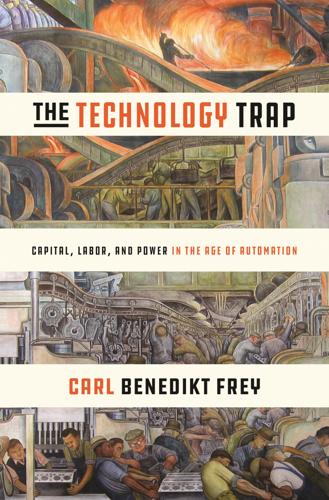
The Technology Trap: Capital, Labor, and Power in the Age of Automation
by
Carl Benedikt Frey
Published 17 Jun 2019
See also Industrial Revolution Bronx, 182 Bronx-Whitestone Bridge, 167 Bronze Age, 35 Brown, Sherrod, 291 Brynjolfsson, Erik, 303, 326, 329, 339 bubonic plague (1348) (Black Death), 67, 75 Bureau of Labor Statistics (BLS), 191 Bush, George W., 357 Bythell, Duncan, 121 California Civil Code of 1872, 359 Čapek, Karel, 74 capitalism: perceived threat to, 210; beginnings of, 70; criticism of, 342; impact of clocks on evolution of, 47; rise of, 218; Jeffersonian ideal under, 212; normal state of, 210 capitalist achievement, 294 Capitoline Hill, 40 Captain Swing riots, 130, 285 caravel construction, 50–51 Cardwell, Donald, 47, 59, 97 Carlyle, Thomas, 117 Carnegie, Andrew, 208 Cartwright, Edmund, 105, 127 Case, Anne, 255–56 Cave, Edward, 102 Celestine III, Pope, 44 cement masonry, discovery of, 37 Chadwick, Edwin, 114–15 Charles I of England, King, 54–55, 82, 86 Chartism, 137 cheap labor, slower mechanization and, 75 Cherlin, Andrew, 276, 279 Chetty, Raj, 253, 361 child labor, 103, 123, 134; as opportunity cost to education, 214; robots of Industrial Revolution, 8–9 chimney aristocracy, 89 China: admission to World Trade Organization, 281, 286; ascent of, 289; delayed industrialization in, 88; trade war with, 331 Christensen, Clayton, 354 Chrysler Building, 182 civil rights: lagging, 20; legislation, 280 Civil War (American), 75 Civil War (English), 81 Clark, Gregory, 29, 48, 60 classical civilizations, 37 clientelism, 271 Clinton, Hillary, 285 clocks, 47 Coalbrookdale Iron Company, 108 cognitive divide, 238–43 Colbert, Jean-Baptiste, 84 collective action problem, 19–20 collective bargaining, 192 college-educated citizens: activities of, 352; detachment of, 256; among Great Divergence, 258, 358; hours per day worked, 338; perceived untrustworthiness of, 278; promotion of, 350; qualified as middle class, 239 Colt, Samuel, 149–50 Columbus, Christopher, 51, 67 Communist Manifesto, 7, 63, 70, 119 competition: among nation-states, 19, 57, 89; cascading, 289 computer-aided design software, 13 computer-controlled machines, jobs eliminated by, 228 computer publishing, 247 computers: age of, 228–38; analysts in, 235; automation anxiety concerning, 183; jobs created in, 16; ranks of the affluent in, 224; revolution, 249; those who thrived in, 16; trend beginning with, 258 connectivity, 362–63 consumer products: cheapening of, 294; new, Americans’ growing appetite for, 203 containerization, 171–72 Corbyn, Jeremy, 281 Corn Laws, 267 corporate giants, 208 corporate paternalism, 200 corporate profits, 132, 244 cotton cloth guild, 88 cotton industry, 100 cotton production, mechanization of, 7 Cowie, Jefferson, 200 craft guilds, 55–57, 87 Crafts, Nicholas, 107, 329 crime, joblessness and, 253 Crimean War, 150 Crompton, Samuel, 94, 102 Crouzet, François, 70 Crystal Palace Exhibition of 1851, 147, 149 cultural phenomenon, working class as, 278 culture of growth, 77 Dactyl, 313 Da Gama, Vasco, 51, 67 Dahl, Robert, 273, 352 Daimler, Gottlieb, 166 Darby, Abraham, 108 Dark Ages, light in, 41–51 data, as the new oil, 304 David, Paul, 153, 326 Davis, James J., 175 “deaths of despair,” 256 Deaton, Angus, 8, 255 Declaration of Rights of 1689 (Bill of Rights), 79 Decree Tractor Company, 215 Deep Blue, 303 deep learning, 304 Deep Mind, 301 Defense Advanced Research Projects Agency (DARPA), 307 Defoe, Daniel, 68–69, 71, 84 democracy: legitimacy of, undermining of, 274; liberal, components of, 267; middle class and, 265–69; rise of, 265 Descartes, René, 94 Detroit, Michigan, 151, 257, 359 Devine, Warren, Jr., 153 Diamond, Jared, 64 Dickens, Charles, 117 digital communication, 360 digital industries, clustering of, 260 Diocletian, Roman Emperor, 65 disappearance of jobs, 250–52 “disciplined self” identity, 279 Disraeli, Benjamin, 112, 268 Dittmar, Jeremiah, 48 Domesday Book of 1086, 44 domestic system of production, 61, 71; downfall of, 8 Douglas, Paul H., 178–79 Drebbel, Cornelis, 52 drones, 342 Drucker, Peter F., 227 drudgery, end of, 193–98 Dust Bowl (1930s), 193, 204 Dutch Revolt, 81 Earned Income Tax Credit (EITC), 357 earnings gap, 230 economic incentive, lack of, 40 economic inequality, 22, 274, 277 economic parasites, 79 economic segregation, 356 economies of scale, factories taking advantage of, 110 Eden, Frederick, 116, 344 Edison, Thomas, 2, 52, 148, 189 education and technology, race between, 216 Eilmer of Malmesbury, 78 Eisenhower, Dwight, 307 electricity, early days of, 151 electrification, rural, 157 Electronic Numerical Integrator and Calculator (ENIAC), 230 elevator: arrival of, 14; automatic, 182 Elevator Industry Association, 182 elevator operators, vanishing of, 181, 227 Elizabeth I of England, Queen, 10, 54, 105 Empire State Building, 182 enabling technologies, 13, 227, 228 Engels, Friedrich, 70, 112, 249, 364 Engels’ pause, 131–37, 219; ending of, 287; polarization and, 266; return of, 243–48, 331; time of, 337 English craft guilds, fading power of, 87 entrepreneurial risk, 77 Facebook, 285 factory system, 8, 97, 126; annus mirabilis of 1769, 97; artisans, 98; child labor, 103, 104; coke smelting, 109; control over factory workforce, 104; cotton industry, 100; domestic industry, output growth in, 98; earlier modes of production, 97–98; economies of scale, factories taking advantage of, 110; electrification, 190, 195; Industrial Revolution, 97, 100–101; international trade, rise of, 99; inventions, 102; iron, railroads, and steam, 105–11; mechanical clock as enabling technology for, 47; railroad, arrival of, 108; rise of machines, 99–105; silk industry, beginnings of, 99; social savings of steam engine, 107; steam engine, economic virtuosity of, 107; working class, 98 Fairchild Semiconductor, 359 Fair Labor Standards Act of 1938, 200 farming: disappearance of jobs, 197, 203; mechanization of, 324; revolution, 168–69 feudal oligarchies, replacement of, 58 feudal order: political participation in, 265; rise of, 41, 62 Field, Alexander, 163, 170 Finley, Moses, 36 First Opium War, 88 Fisher, Alva J., 27 Fisher, Irving, 210 Ford, Henry, 141, 148, 167, 195, 365 Ford assembly lines, 18, 365 Ford Motor Company, 148, 199, 240 France, industrial development in, 84 Francis I, Holy Roman Emperor, 85 French Revolution, 90 Friedman, Milton, 355 Friedman, Thomas, 257 Fukuyama, Francis, 141, 264–65, 273, 343 Furman, Jason, 322 Galileo, 39, 52, 54, 94 Galor, Oded, 133 Gans, Joshua, 308 Garden of Eden, 191 Gaskell, Elizabeth, 117 Gaskell, Peter, 117–119, 135, 229, 249 Gates, Bill, 10 Gates paradox, 10, 11, 21 General Electric, 155, 157, 215, 289 General Motors assembly lines, 18 geography of new jobs, 256–63 George Washington Bridge, 167 Giffen, Robert, 132–33 gig mill, 10, 76, 86, 128 Gilded Age, 208 Gille, Bertrand, 39–40 Gini coefficient, 209, 245 Gladstone, William Ewart, 133 Glaeser, Edward, 257, 261, 263 globalization: automation, and populism, 277–85; backlash against, 365; clamping down on, 290; costs of, 366; facilitator of, 282; first wave of, 171; losers to, 21, 26; vanishing jobs and, 11 Glorious Revolution of 1688–89, 79, 82–83, 86 Golden Gate, 167 golden postwar years, 239 Goldfarb, Avi, 308 Goldin, Claudia, 213, 349 Goldin, Ian, 357 Gompers, Samuel, 279 Goodyear Tire, 199 Google, 305 Google Translate, 304 Goolsbee, Austan, 340 Gordon, Robert, 198, 202, 220, 272, 342 government regulations, 49, 137 Great Depression, 13, 143, 170, 211, 272 Great Divergence, 24; absence of economic revolution, 95; beginnings of industrialization, 94; factory system, evolution of (see factory system); Industrial Revolution (see Industrial Revolution); per capita income growth, 94; rise of the machines, 93; textile industry, Industrial Revolution begun in, 95 Great Escape, 8 “great exception” in American political history, 200 Great Migration, 205 Great Recession, 244, 284, 339, 343 Green, William, 174 Greif, Avner, 88, 92, 344 growth, culture of, 77 Gutenberg, Johannes, 47 Habsburg Empire, 85 Hammer, Michael, 326 Hansen, Alvin, 179, 342 Hargreaves, James, 102–3 Harlem, 1 Harper, Kyle, 37 Hawking, Stephen, 36 hazardous jobs, end of, 195, 198 health conditions, during Industrial Revolution, 114–15 Heaton, Herbert, 37 Heckman, James, 351 Heilbroner, Robert, 335 Hellenism, technological creativity of, 39 Henderson, Rebecca, 305, 331 Hero of Alexandria, 39 high school graduates, employment opportunities for, 237 high school movement (1910–40), 214 Himmelfarb, Gertrude, 268 Hindenburg disaster, 110 hinterland, cheap labor and housing of, 261 history deniers, 23 Hitler, Adolf, 12 Hobbes, Thomas, 8, 46 Hobsbawm, Eric, 7 Hoover, Herbert, 211 horseless age, 164 horse technology, 43, 163 Hounshell, David, 148, 150 household revolution, 155–56 housing, zoning and, 361–62 housing bubble, 282 human capital accumulation, indicators of, 133–34 Humphries, Jane, 103, 121 Hurst, Erik, 338 Huskisson, William, 109–10 Hyperloop, 363 IBM, 231 Ibsen, Henrik, 17 Ice Age, 64, 76 identity politics, 278 “idiocy of rural life,” 62–64 income(s): disparities of, 61; reshuffling of, 287 income tax (Britain), introduction of, 133 incubators, nursery cities serving as, 261 industrial bourgeoisie, 267 industrial capitalism, rise of, 218 industrial centers, rise of, 115 industrial espionage, 6 industrialization, first episode of, 16 industrial organization, fundamental principle of, 229 Industrial Revolution, 68, 70; alcoholism, 123; in Britain, 329; Britain’s edge during, 19; British income tax, introduction of, 133; capital share of income, 131–32; child labor, 123, 134; children as robots of, 8–9; classic years of, 113; closing decades of, 138, 266; conditions of England question, 116–25; consumer revolution preceding, 68; cotton yarn manufacturing at dawn of, 100–101; divergence between output and wages, 131; domestic system, description of, 118; economic consequences of, 17; Engels’ pause, 131–37; engine of, 73; Englishmen left off worse by, 364; factories existing before, 94; gig mills, 128; golden age of industry, 118; government regulation, 137; hand-loom weaver, as tragic hero of Industrial Revolution, 121; health conditions, 114–15; human capital accumulation, indicators of, 133–34; labor income share captured, 114; industrial centers, rise of, 115; jobs created by, 16; key drivers of, 342; labor unions, bargaining power of, 137; Lancashire riots, 125, 127; leading figures of, 70; literacy rates, 134; Luddites, 125–31; machinery question, concerns over, 116; machinery riots, 127, 130; macroeconomic impact of, 94; material living conditions, decline of, 114, 120–21; mobility of workers, 122; obsolescence of worker skills, 124; origins of, 6, 80–91; political situation of workers, 129; reason for beginnings in Britain, 75; recipients of the gains of, 113; standard of living issue, 121; steam power, impact of on aggregate growth, 136; symbolic beginning of, 97; tax revenue, 133; technical change during closing decades, 139; technological progress, attitudes toward, 112; trajectory of inequality in Britain during, 217; true beginnings of, 100; unemployment, 113, 117, 125; victims of, 9; Victorian Age, machinery critics of, 119; wave of gadgets, 330; working poor, 113 inequality: age of, beginnings of, 62; Neolithic rise in, 63 inflation, 294 information technology, first revolution in, 47 inner-city ghettos, problems in, 258 innovation, 257; nurseries for, 261 innovation gap, 352 in-person service jobs, 235 inspiration without perspiration, 51–59 installment credit, 159, 167 institutional divergence (colonial Europe), 81 Intel, 359 interchangeable parts: concept of, 149; pioneering of, 74 International Labour Organization (ILO), 181 International Monetary Fund (IMF), 245 international trade, rise of, 67, 69, 99 Internet of things, 22 internet traffic: spread of, 328; worldwide, 303 inventions: agriculture, 54, 62; assembly line, 141, 365; barometer, 52, 59; bicycle, 165; camel saddle, 77; carding machine, 102; of classical times, 39; coke smelting, 108; electric starter, 166; iron, 36; light bulb, 2; mariner’s compass, 50; movable-type printing press, 47; nailed horseshoe, 43; navigable submarine, 52; personal computer (PC), 231; power loom, 105; spinning jenny, 102; steam digester, 55; steam engine, 52, 76; stirrup, 43; stocking-frame knitting machine, 54, 76; submarine, 73; telescope, 59; transistor, 231; typewriter, 161–62; washing machine, 27; water frame, 102; waterwheel, 38; wheel, 35 Iron Age, 35 iron laws of economics, 206 James I of England, King, 52 Japan, ascent of, 289 JD. com, 313 Jeffersonian individualism, 200 Jenkinson, Robert, 2nd Earl of Liverpool, 130, 289 Jerome, Harry, 13, 154, 198, 328 job demand, creation of, 262 Johnson, Lyndon, 184 Joyce, James, 16 Kaldor, Nicholas, 5, 205 Kasparov, Garry, 301 Katz, Lawrence, 135, 213, 245, 349 Kay-Shuttleworth, James, 117, 229 Kennedy, John F., 183 Kettering, Charles, 166 Keynes, John Maynard, 332, 334 King, Gregory, 68 knowledge work, 235, 259 Komlos, John, 115 Korea, ascent of, 289 Korean War, 180 Krugman, Paul, 12 Kuznets, Simon, 5, 206–7 Kuznets curve, 207, 212 labor, division of, 228 labor multiplier, 347 Labor Party, rise of, 268 labor productivity, gap between worker compensation and, 244 labor unions, 212; bargaining power of, 201, 277; legalization in Britain, 190 laissez-faire regime, 25, 267 lamplighters, 1–2 Lancashire riots of 1779, 90 landed aristocracy, 83 Landes, David, 9, 112, 118, 134, 343 Land-Grant College Act of 1862, 364 Latin Church, oppression of science by, 79 laundress, vanishing of, 27, 160 Lee, William, 10, 54 Lefebvre des Noëttes, Richard, 43 Leonardo da Vinci, 38, 51, 73 Leontief, Wassily, 20, 338, 343 Levy, Frank, 237, 302, 323 liberal democracy, components of, 267 Lindert, Peter, 61, 68, 114, 207, 211, 269, 271 literacy, demand for, 76 Liverpool-Manchester Railway, 109 lobbying, corporate spending on, 275 Locke, John, 83 Lombe, John, 52, 99–100 Lombe, Thomas, 6, 100 London Steam Carriage, 109 longshoremen, vanishing of, 172 Louis XIV of France, King, 84 Luddites, 9, 18, 125–31, 341; imprisoned, 20; new, 286–92; riots, 89, 92; uprisings, 265 machinery question, 116, 174–88; adjustment problems, 177; automation, employment effects of, 180; computers, automation anxiety concerning, 183; elevator operators, 181–82; musicians, displaced, 177–78 machinery riots, 9, 265, 289; absence of (America), 190; Britain, 90 Maddison, Angus, 66 Magellan, Ferdinand, 51, 67 majority-rule voting system, 270 Malthus, Thomas Robert, 4, 64, 73, 316, 345 Malthusian logic, 345 Malthusian trap, escape of, 65 Manhattan Project, 74 Manpower Training and Development Act (MDTA), 353 Mantoux, Paul, 97, 101, 126 Manufacture des Gobelins, 84 Manufacture Royale de Glaces de Miroirs, 84 manufacturing: blue-collar jobs, disappearance of, 251, 254; American system of manufacturing, pioneers of, 149; factory electrification, 151–55; interchangeable parts, concept of, 149 Margo, Robert, 135, 145 markets, integration of, 86 Marx, Karl, 26, 47, 98, 239, 364 Massey, Douglas, 256 Massive Open Online Courses (MOOCs), 354 mass production, 147–73; American system of manufacturing, pioneers of, 149; containerization, 171–72; direct drive, 153; factory electrification, 151–55; horseless age, 164; household revolution, 156; industries, 18; installment credit, 159, 167; interchangeable parts, concept of, 149; Model T, 167; unit drive, 153 Maurice of Nassau, Prince of Orange, 59 Maybach, Wilhelm, 166 McAfee, Andrew, 303, 339 McCloskey, Deirdre, 70 McCormick, Cyrus, 149, 168 McLean, Malcom, 171 mechanics, Galileo’s theory of, 53 mechanization, age of automation vs. age of, 227 median voter theories, 270 medieval Christianity, 78 mercantilism, flawed doctrine of, 83 Mesopotamia, 35 metals, discovery and exploitation of, 35 Michigan Antitrust Reform Act of 1985, 359 Microsoft, 306 Middle Ages: agricultural technology in, 42; feudal order of, 57; onset of, 41; technical advances of, 50; traditional crafts of, 68 middle class, descent of, 223–25; artificial intelligence, 228; automation, adverse consequences of, 240; cognitive divide, 238–43; computer-controlled machines, jobs eliminated by, 228; computers, 228–38; corporate profits, 244; division of labor between human and machine, 228; earnings gap, 230; Engels’ pause, return of, 243–48; golden postwar years, 239; Great Recession, 244; high school graduates, employment opportunities for, 237; industrial organization, fundamental principle of, 229; in-person service jobs, 235; knowledge workers, 235; labor productivity, gap between worker compensation and, 244; mechanization, age of automation vs. age of, 227; multipurpose robots, 242; rule-based logic, 228; Second Industrial Revolution, elimination of jobs created for machine operators during, 228; “symbolic analysts,” 235 middle class, triumph of, 218–222; agriculture, mechanization of, 189; automotive industry, 202; baby boom, 221; blue-collar Americans, unprecedented wages of, 220; child labor, as opportunity cost to education, 214; collective bargaining, 192; corporate giants, 208; corporate paternalism, 200; education and technology, race between, 216; end of drudgery, 193–98; Engels’ pause, 219; factory electrification, 190, 195; farming jobs, decline of, 197, 203; Great Depression, 211; “great exception” in American political history, 200; Great Migration, 205; hazardous jobs, end of, 195, 198; high school movement (1910–40), 214; Jeffersonian individualism, 200; Kuznets curve, 207, 212; labor unions, 201, 212; leveling of American wages, 211; machinery riots, absence of, 190; middle class, emergence of, 192, 292; national minimum wage, introduction of, 211; new consumer goods, Americans’ growing appetite for, 203; New Deal, 200, 212; public schooling, 214; Second Industrial Revolution, 209, 217; skill-biased technological change, 213; tractor use, expansion of, 196; urban-rural wage gap, 209; Wall Street, depression suffered by, 211; welfare capitalism, 198, 200; welfare state, rise of, 221; white-collar employment, 197, 218 Middle East, 77 Milanovic, Branko, 217, 245 mining, 194, 197 Minoan civilization, 34 mobile robotics, 342 mobility, demands for, 348 mobility vouchers, 360 Model T, 167 modern medicine, rise of, 22 Mokyr, Joel, 19, 52, 76–77, 79 Moore’s Law, 107, 301, 304 Moravec’s paradox, 236 Moretti, Enrico, 258, 262–63, 360 Morgan, J.

24/7: Late Capitalism and the Ends of Sleep
by
Jonathan Crary
Published 3 Jun 2013
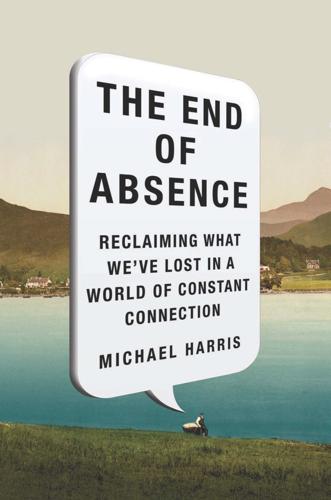
The End of Absence: Reclaiming What We've Lost in a World of Constant Connection
by
Michael Harris
Published 6 Aug 2014

Now I Sit Me Down: From Klismos to Plastic Chair: A Natural History
by
Witold Rybczynski
Published 22 Aug 2016
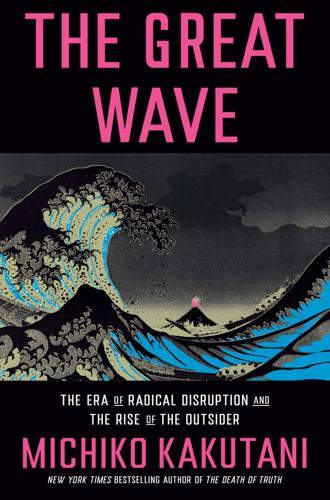
The Great Wave: The Era of Radical Disruption and the Rise of the Outsider
by
Michiko Kakutani
Published 20 Feb 2024
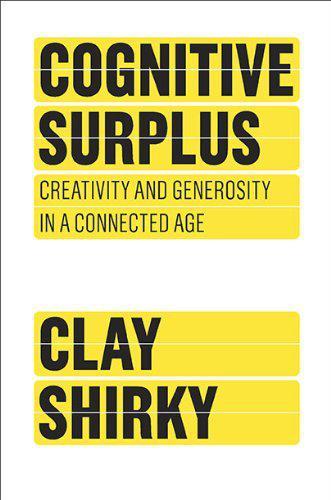
Cognitive Surplus: Creativity and Generosity in a Connected Age
by
Clay Shirky
Published 9 Jun 2010
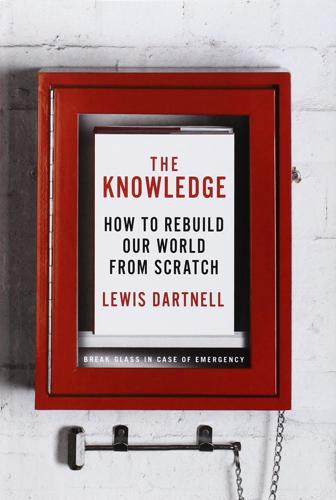
The Knowledge: How to Rebuild Our World From Scratch
by
Lewis Dartnell
Published 15 Apr 2014

Accessory to War: The Unspoken Alliance Between Astrophysics and the Military
by
Neil Degrasse Tyson
and
Avis Lang
Published 10 Sep 2018
As to the availability of ready-made lenses, Van Helden marshals extensive evidence that by the middle of the sixteenth century, the shops of spectacle sellers across Europe commonly offered a selection of both concave and convex lenses of varying strengths. The explosion of book publication in mid-fifteenth-century Europe, spurred by Johannes Gutenberg’s invention of the printing press with movable metal type, had led to rapid increases in myopia. The solution—concave spectacle lenses—was for sale in Florence by 1451 (Van Helden, “Invention of the Telescope,” 10–11). 3.See Watson, Stargazer, 71–73, re observations prior to Galileo’s. As with the rest of his scientific discoveries, Harriot did not publish his results, note J.
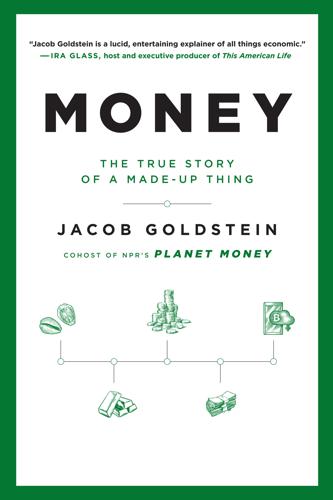
Money: The True Story of a Made-Up Thing
by
Jacob Goldstein
Published 14 Aug 2020
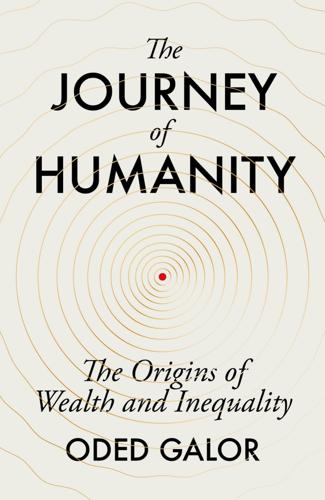
The Journey of Humanity: The Origins of Wealth and Inequality
by
Oded Galor
Published 22 Mar 2022
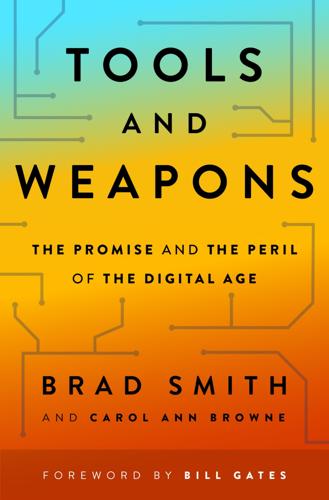
Tools and Weapons: The Promise and the Peril of the Digital Age
by
Brad Smith
and
Carol Ann Browne
Published 9 Sep 2019

The Wordy Shipmates
by
Sarah Vowell
Published 30 Sep 2008
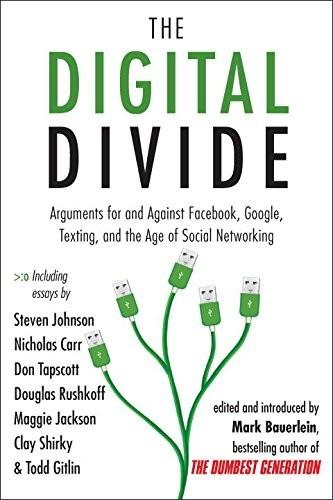
The Digital Divide: Arguments for and Against Facebook, Google, Texting, and the Age of Social Netwo Rking
by
Mark Bauerlein
Published 7 Sep 2011
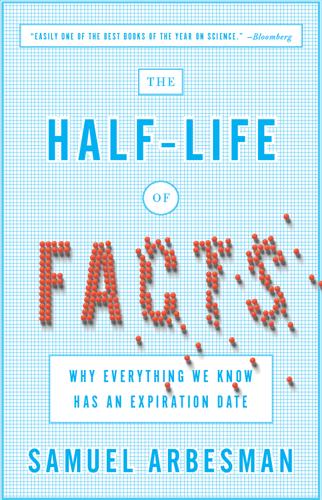
The Half-Life of Facts: Why Everything We Know Has an Expiration Date
by
Samuel Arbesman
Published 31 Aug 2012

The Narrow Corridor: States, Societies, and the Fate of Liberty
by
Daron Acemoglu
and
James A. Robinson
Published 23 Sep 2019

Free Speech: Ten Principles for a Connected World
by
Timothy Garton Ash
Published 23 May 2016

When Things Start to Think
by
Neil A. Gershenfeld
Published 15 Feb 1999

Delete: The Virtue of Forgetting in the Digital Age
by
Viktor Mayer-Schönberger
Published 1 Jan 2009
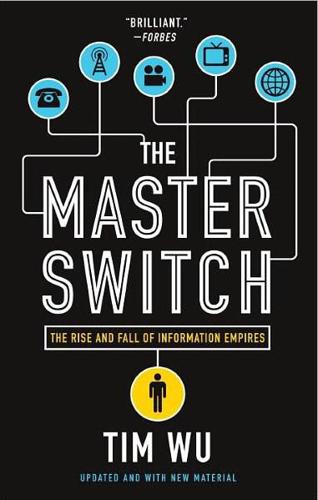
The Master Switch: The Rise and Fall of Information Empires
by
Tim Wu
Published 2 Nov 2010
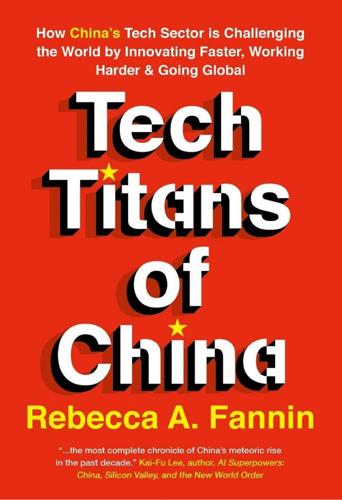
Tech Titans of China: How China's Tech Sector Is Challenging the World by Innovating Faster, Working Harder, and Going Global
by
Rebecca Fannin
Published 2 Sep 2019
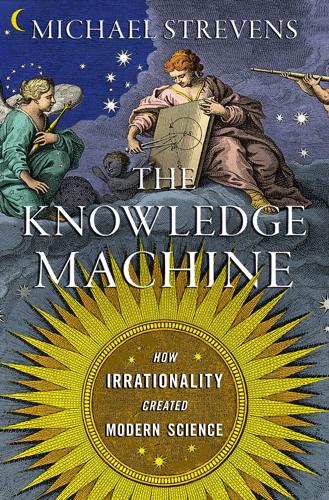
The Knowledge Machine: How Irrationality Created Modern Science
by
Michael Strevens
Published 12 Oct 2020
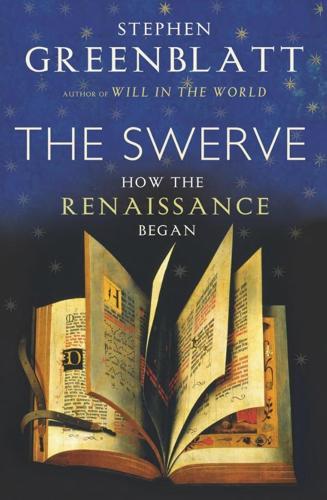
The Swerve: How the Renaissance Began
by
Stephen Greenblatt
Published 31 Aug 2011
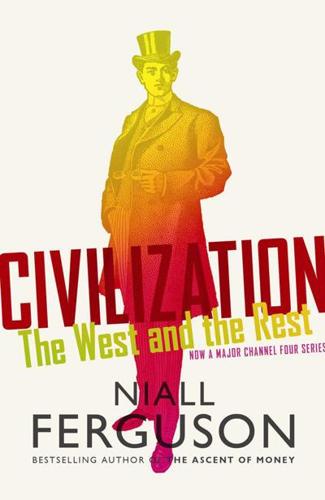
Civilization: The West and the Rest
by
Niall Ferguson
Published 28 Feb 2011
But a more decisive breakthrough than the Renaissance was the advent of the Reformation and the ensuing fragmentation of Western Christianity after 1517. This was in large measure because of the revolutionary role of the printing press, surely the single most important technological innovation of the period before the Industrial Revolution. As we have seen, the Chinese can claim to have invented printing with a press (see Chapter 1). But Gutenberg’s system of movable metal type was more flexible and scalable than anything developed in China. As he said, ‘the wondrous agreement, proportion and harmony of punches and types’ allowed for the very rapid production of pamphlets and books. It was far too powerful a technology to be monopolized (as Gutenberg hoped it could be).

Content: Selected Essays on Technology, Creativity, Copyright, and the Future of the Future
by
Cory Doctorow
Published 15 Sep 2008
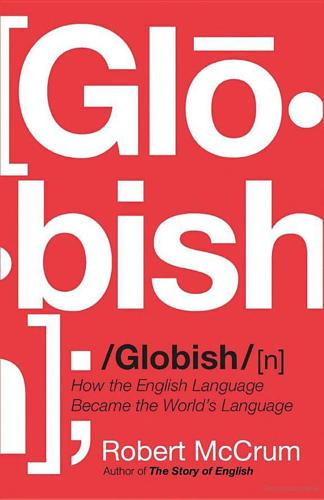
Globish: How the English Language Became the World's Language
by
Robert McCrum
Published 24 May 2010
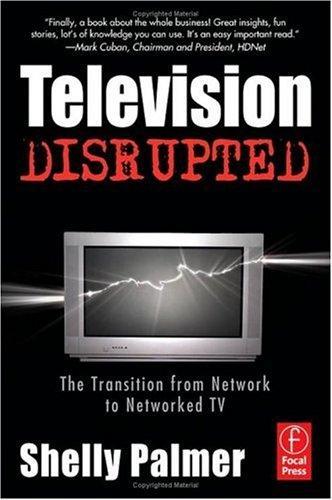
Television disrupted: the transition from network to networked TV
by
Shelly Palmer
Published 14 Apr 2006
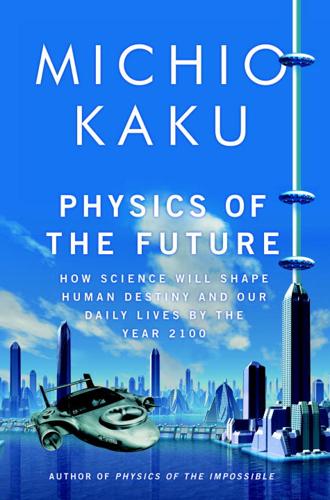
Physics of the Future: How Science Will Shape Human Destiny and Our Daily Lives by the Year 2100
by
Michio Kaku
Published 15 Mar 2011
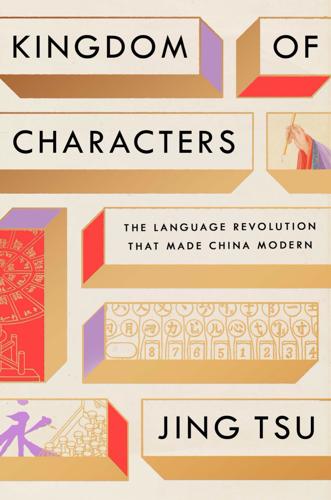
Kingdom of Characters: The Language Revolution That Made China Modern
by
Jing Tsu
Published 18 Jan 2022
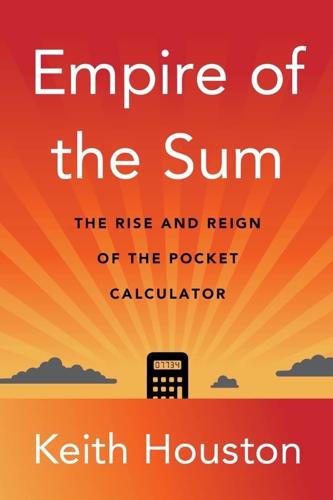
Empire of the Sum: The Rise and Reign of the Pocket Calculator
by
Keith Houston
Published 22 Aug 2023

Likewar: The Weaponization of Social Media
by
Peter Warren Singer
and
Emerson T. Brooking
Published 15 Mar 2018
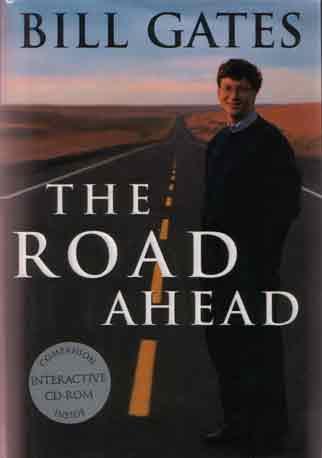
The Road Ahead
by
Bill Gates
,
Nathan Myhrvold
and
Peter Rinearson
Published 15 Nov 1995

Visual Thinking: The Hidden Gifts of People Who Think in Pictures, Patterns, and Abstractions
by
Temple Grandin, Ph.d.
Published 11 Oct 2022

Paper Knowledge: Toward a Media History of Documents
by
Lisa Gitelman
Published 26 Mar 2014
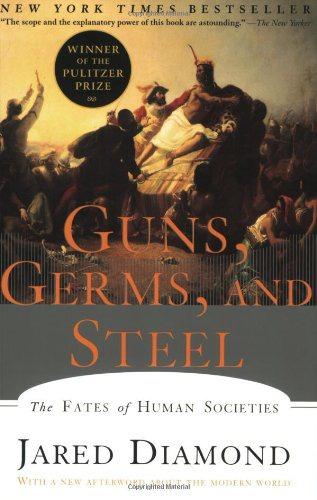
Guns, germs, and steel: the fates of human societies
by
Jared M. Diamond
Published 15 Jul 2005
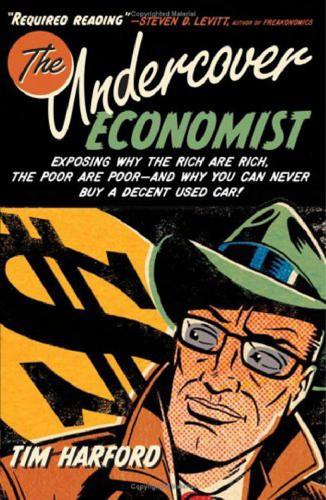
The Undercover Economist: Exposing Why the Rich Are Rich, the Poor Are Poor, and Why You Can Never Buy a Decent Used Car
by
Tim Harford
Published 15 Mar 2006
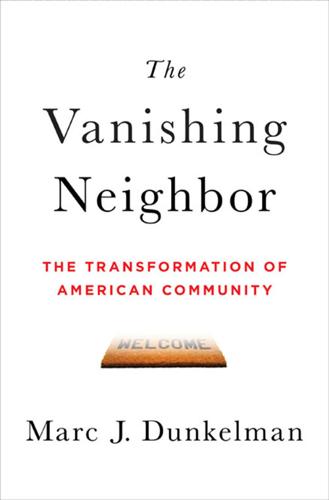
The Vanishing Neighbor: The Transformation of American Community
by
Marc J. Dunkelman
Published 3 Aug 2014
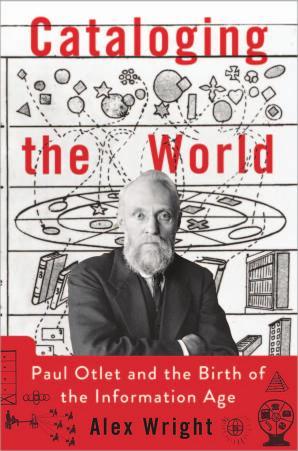
Cataloging the World: Paul Otlet and the Birth of the Information Age
by
Alex Wright
Published 6 Jun 2014

Super Continent: The Logic of Eurasian Integration
by
Kent E. Calder
Published 28 Apr 2019
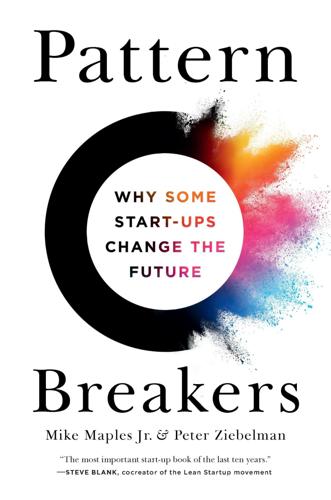
Pattern Breakers: Why Some Start-Ups Change the Future
by
Mike Maples
and
Peter Ziebelman
Published 8 Jul 2024
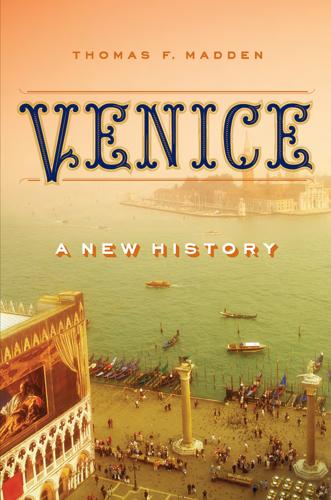
Venice: A New History
by
Thomas F. Madden
Published 24 Oct 2012

The Clock Mirage: Our Myth of Measured Time
by
Joseph Mazur
Published 20 Apr 2020

Arabs: A 3,000 Year History of Peoples, Tribes and Empires
by
Tim Mackintosh-Smith
Published 2 Mar 2019
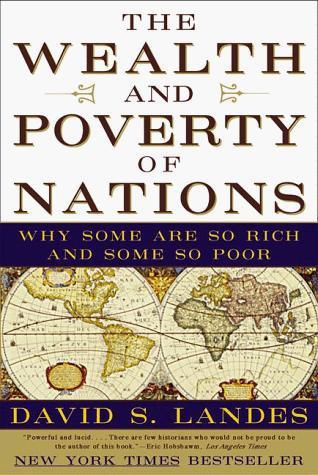
The Wealth and Poverty of Nations: Why Some Are So Rich and Some So Poor
by
David S. Landes
Published 14 Sep 1999
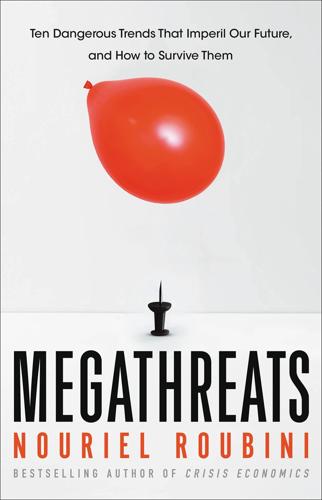
MegaThreats: Ten Dangerous Trends That Imperil Our Future, and How to Survive Them
by
Nouriel Roubini
Published 17 Oct 2022
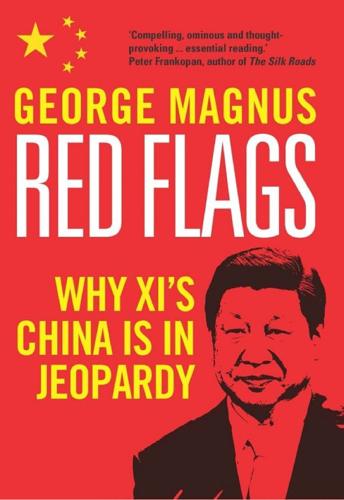
Red Flags: Why Xi's China Is in Jeopardy
by
George Magnus
Published 10 Sep 2018

Utopia Is Creepy: And Other Provocations
by
Nicholas Carr
Published 5 Sep 2016
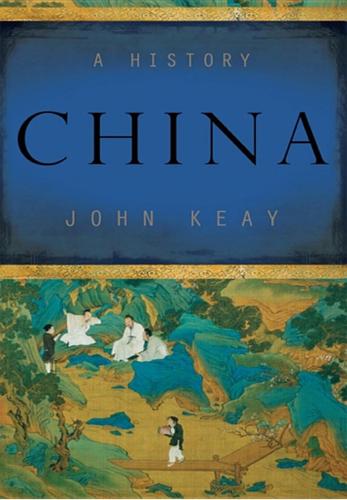
China: A History
by
John Keay
Published 5 Oct 2009

Sex Power Money
by
Sara Pascoe
Published 26 Aug 2019
You’ll have heard the argument that every new technology was advanced by demand for porn, and there’s much truth to that. Around AD 1040 movable-type printing was invented in China, during the Song dynasty. Woodblock printing had been around for about eight hundred years, but now technology was improving and people could reconfigure all the words and letters and use them to write saucy stories about the adventures of boobies. Then around 1450 Johannes Gutenberg revolutionised printing with his metal movable type. The Gutenberg printing press was used to make copies of a special religious book called the Bible. Between 150 and 180 copies of the Gutenberg Bible were printed in the first mass publication ever.* The Bible is not considered erotica even though it has loads of fornication in it.
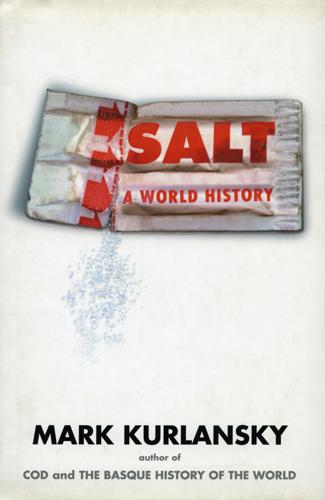
Salt: A World History
by
Mark Kurlansky
Published 28 Jan 2003

WTF?: What's the Future and Why It's Up to Us
by
Tim O'Reilly
Published 9 Oct 2017
Perhaps afraid at first. But soon warmed and fed by her boldness. Even more important than fire itself, though, was her ability to tell others about it. It was language that was our greatest invention, the ability to pass fire from mind to mind. In periods where knowledge is embraced and widely shared, society advances and becomes richer. When knowledge is hoarded or disregarded, society becomes poorer. The adoption of movable type and the printed book in fifteenth-century Europe led to our modern economy, a remarkable flowering of both knowledge and of freedom, as the discoverers of the new could pass the fire of knowledge to people not yet born and to those living thousands of miles away.
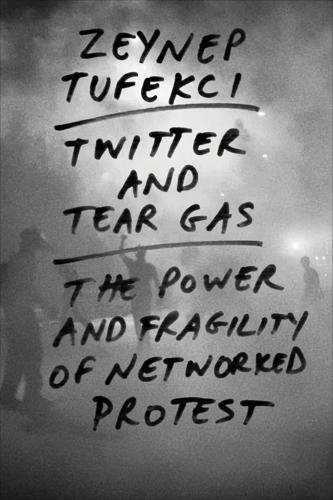
Twitter and Tear Gas: The Power and Fragility of Networked Protest
by
Zeynep Tufekci
Published 14 May 2017
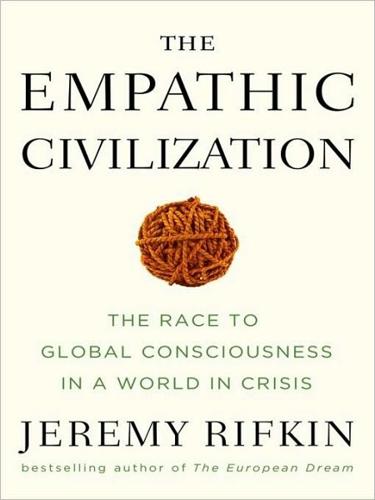
The Empathic Civilization: The Race to Global Consciousness in a World in Crisis
by
Jeremy Rifkin
Published 31 Dec 2009
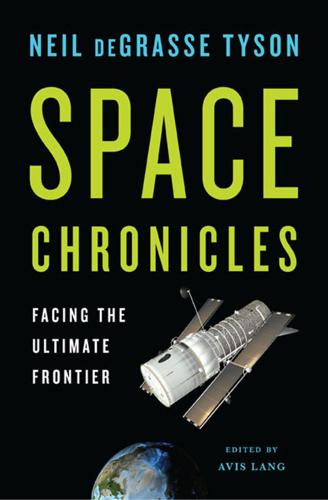
Space Chronicles: Facing the Ultimate Frontier
by
Neil Degrasse Tyson
and
Avis Lang
Published 27 Feb 2012
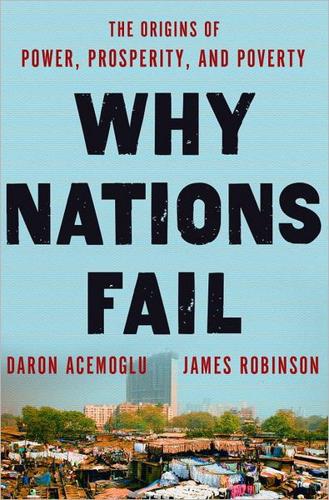
Why Nations Fail: The Origins of Power, Prosperity, and Poverty
by
Daron Acemoglu
and
James Robinson
Published 20 Mar 2012
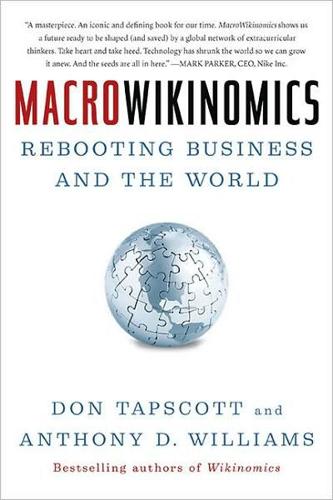
MacroWikinomics: Rebooting Business and the World
by
Don Tapscott
and
Anthony D. Williams
Published 28 Sep 2010
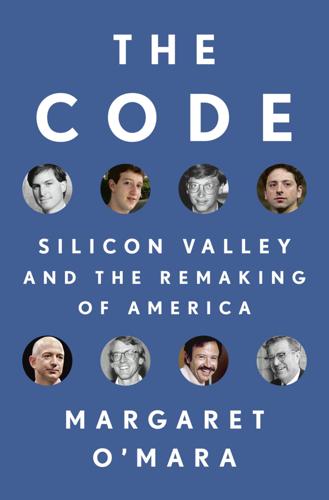
The Code: Silicon Valley and the Remaking of America
by
Margaret O'Mara
Published 8 Jul 2019

Europe: A History
by
Norman Davies
Published 1 Jan 1996